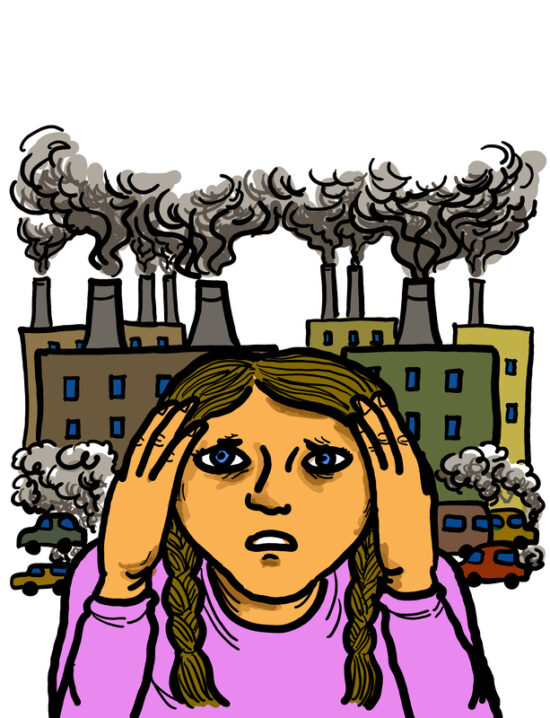Is there a correlation between rising greenhouse gas emissions and atmospheric warming? The consensus among climatologists and the scientific community is decidedly yes.
Is there a correlation between atmospheric warming from climate change and a rise in mental disorders? A recent editorial in the journal Nature says yes. The editorial states that “the warming planet is worsening mental illness and distress” and cites evidence from briefing papers authored by faculty and researchers at the Imperial College London, the Institute of Global Health Innovation and the Grantham Institute for Climate Change in the United Kingdom.
The research results published in Nature show:
- a clear relationship between increased temperatures and the number of suicides;
- clear evidence of severe distress in human populations following extreme weather events;
- that people who meet the criteria for mental illness are more vulnerable to the effects of climate change on physical as well as mental health;
- the climate crisis threatens the provision of care for people with a mental illness diagnosis;
- climate change exacerbates mental distress, particularly in young people and even in those not directly affected leading to growing eco-anxiety;
- that the impact on mental health will worsen without meaningful interventions by government, institutions and society;
- there are hidden costs unaccounted for in policy and planning that need to be revealed through additional research.
Eco-anxiety is a psychological response to current climate change and the threat of future changes to the environment. Other terms used to describe this mental state include eco-distress, climate anxiety and climate grief.
A survey undertaken in 2021 of 10,000 between the ages of 16 and 25 in ten countries indicated:
- 60% were highly worried about climate change;
- 58% said their governments were betraying them and the lives of future generations because of inaction;
- 55% felt powerless against climate change;
- 45% indicated that climate change affected work, sleep and other aspects of their daily lives.
The British medical publication, The Lancet, has created an annual countdown since 2015 that tracks the impact of climate change on health looking at 47 indicators over five categories:
- climate change impacts, exposures, and vulnerability;
- adaptation, planning, and resilience for health;
- mitigation actions and health co-benefits;
- economics and finance;
- and public and political engagement.
The World Health Organization (WHO) has published a policy brief on mental health and action on climate change. In a 2022 news release, Dr. Maria Neira, Director of the Department of Environment, Climate Change and Health, stated:
“The impacts of climate change are increasingly part of our daily lives, and there is very little dedicated mental health support available for people and communities dealing with climate-related hazards and long-term risk.”
A WHO survey conducted in 95 countries found that only 9 included psychosocial support in national health strategies related to climate change planning. It noted that the mental health impacts of climate change disproportionately affect different human populations based on socioeconomic factors, gender and age. Young people are seen as those who are experiencing growing climate eco-anxiety and grief.
Some countries have taken action. Among the aforementioned 9 is the Philippines which was devastated by Typhoon Haiyan in 2013 and has rebuilt its mental health services to address extreme weather events and climate change threats. Another is India which has launched a national plan focused on building capacity to address climate risks including the delivery of mental health and psychosocial services.
What is meant by psychosocial needs? The WHO describes services delivered by mental health and social agencies that focus on the state of an individual’s well-being, helping with coping with stress, work, family, and community life.
The WHO has called for governments to:
- integrate climate considerations with mental health programs;
- incorporate mental health support with climate action;
- build upon global commitments as defined by the International Panel on Climate Change reports produced by the United Nations;
- develop community-based approaches to reduce vulnerabilities;
- provision for the financing of mental health and psychosocial support which is currently seriously underfunded.
















